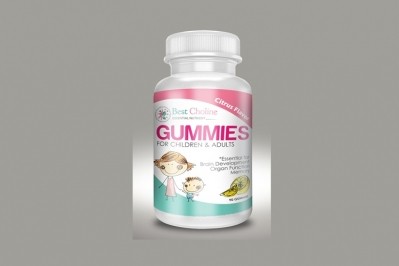Study on piglets shows that deficient choline harms brain development

The story of how adequate prenatal choline supports brain development in fetuses and cognitive functioning in infants has been developing for a while now, but much research has been done in murine models. The most recent data from the Illinois team is on pigs, which is a more relevant model to humans, said researcher Austin Mudd, a doctoral candidate in the Neuroscience Program at U of I.
“We know the pig is a good model for humans because they have the same nutrient requirements, similar metabolic function, and also have very similar brain development, following the same growth trajectories," Mudd said in an article posted on the university’s website. "The pig is bridging the gap between the mechanistic work we see in rodents and that higher-level cognitive function that they're looking at in humans.”
Striking effect on piglet’s brains
In the study the team fed pregnant sows on choline-deficient or choline-sufficient diets through the second half of their pregnancies. After weaning, piglets were fed choline-deficient or choline-sufficient milk replacer for 30 days. Then the month-old piglets were scanned by magnetic resonance imaging (MRI).
Mudd analyzed images of the piglet brains in terms of volume and makeup. The first analysis, reported in a 2016 article in Nutritional Neuroscience, compared the volumes of 19 brain regions in piglets that had received deficient or sufficient choline prenatally and postnatally. The second analysis, published last week in Current Developments in Nutrition, used a different approach to isolate differences in grey and white matter concentration in the piglets' brains.
The researchers found altered grey matter and a lower volume of white matter in the brains of the pigs born of sows on the choline-deficient diets.
Tom Druke, director of strategic marketing at choline supplier Balchem, which manufactures the VitaCholine brand of the ingredient, said U of I has been leading on choline research for some time.
“The University of Illinois first began examining the potential use of pig models for studying infant brain developments in the late 2000s. Professors Rodney Johnson and Ryan Dilger had been working on learning and memory using mouse models while also using pig models to study infectious diseases. This led to their team doing more in-depth comparisons between infant brain development in pigs and they found that pigs and humans share similarities in terms of brain growth spurts, development and maturity. Using imaging studies, they mapped out the development of various regions of pig brains and eventually developed cognitive models to evaluate memory using maze methods commonly found in mice models,” Druke told NutraIngredients-USA.
Raising awareness
Despite the expanding volume of research on choline Druke said there is still much more to be done to raise awareness of its importance.
For one thing, few doctors receive enough training on nutrition. The typical medical school curriculum still spends only 1% of its time on teh subject, Druke said. And surveys have shown that while 70% of those entering medical schools believe proper nutrition is a key part of maintaing health, only 50% still share that view after they graduate. Druke said he and his team have been exploring continuing education options for raising the ingredient’s profile among health care professionals.
“Continuing education modules and presentations at national conferences are always good options, but the best methods are from within the medical practice in the form of policy statements. With the recent AMA support for the inclusion of choline in prenatal vitamins and the highlighting of choline as one of several ‘brain-building nutrients’ by the American Academy of Pediatrics, interest in choline among health professionals and consumers alike is growing," he said.
Awareness on the part of consumers is growing slowly, too, he said.
“Our VitaCholine team has been tracking choline awareness levels via a large, nationally representative annual omnibus study and saw significant growth from 23% in 2016 to 29% in 2017. Balchem has also been collaborating with the Council for Responsible Nutrition to include choline use in their annual survey on dietary supplement usage. During the same time period from 2016 to 2017, choline usage grew 7% despite the fact that most sales are via the specialty retail and internet channels,” Druke said.
New research areas
New research areas will also emphasize the importance of the ingredient, Druke said.
“Several important research streams are currently underway at the Zeisel lab at the University of North Carolina, Chapel Hill and at the Caudill lab at Cornell University. Dr. Zeisel is currently working on identifying a choline biomarker and was the recent recipient of a major NIH grant to help find a better measure of choline status. Dr. Caudill and several of her colleagues are continuing to evaluate the infants from her initial clinical studies to determine the longer-term impact of higher prenatal choline intakes on cognition and academic achievement,” he said.
“Future research paths include epidemiological studies that can better illustrate a dose-response association between choline intakes and health outcomes and the important relationship between choline and liver health,” Druke added.
Source: Current Developments in Nutrition
“Maternal Dietary Choline Status Influences Brain Grey and White Matter Development in Young Pigs”
Published: 21 March 2018
Mudd AT, Getty CM, Dilger RN
















